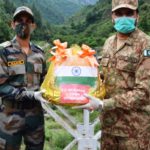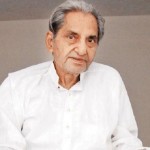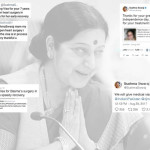When it comes to India Pakistan “talks”, there’s a lot of meaningless yelling and posturing without a sincere attempt to engage
Belligerents are not reluctant to have peace, but they want a peace to their own liking.
– Augustine.
I am writing this note on Sunday, August 23, 2015, the day that the Pakistan’s National Security Advisor Sartaj Aziz was supposed to arrive in New Delhi for talks on terror.
If media reports are to be believed, the Indian side would have given the Pakistanis a dossier with “credible evidence” about the involvement of “Pakistani elements” in terror attacks in India.
Pakistanis on their part were going to provide a dossier with proof of “Indian involvement” in militancy in Balochistan as well as a dossier about the Indian National Security Advisor Ajit Doval himself.
However, that was not to be. India objected to the Pakistani NSA’s plans to meet the separatist Hurriyat party of Kashmir before meeting his Indian counterpart. Pakistan refused to “take dictation” from India. And so the talks ended before they began.
The way India and Pakistan dealt with each other reminded me of the border guards at Attari/Wagah at the flag lowering ceremony every evening. A lot of meaningless yelling and posturing without a sincere attempt to engage.
Let us begin with the Indian side. For a country that has superpower ambitions, things cannot get any worse than this. Only the most ludicrously jingoistic Indians can justify the problem that the Indian side has whenever Pakistani diplomats talk to the Hurriyat leaders.
What can the Hurriyat leaders tell the Pakistanis or vice versa that they cannot do using modern communication technologies is hard to comprehend.
It is time India woke up and smelt the Kashmiri coffee. Kashmir is not going away as a dispute on its own despite 300,000 armed forces personnel stationed there to keep India’s “Atoot ang” attached to the mainland.
If and when Prime Minister Narendra Modi visits Israel in the near future, he will do well to learn from Israel’s missteps and failure to manage Palestine militarily.
India must bring in its relationship with Pakistan the maturity it brought in the India-Bangladesh accord where we overcame the pettiness of a zero sum game. India gave away much more territory than we gained simply because it made sense and it relieved the immediate misery of hundreds of thousands of people.
Machismo looks good in movies, but diplomacy requires patience, single-minded focus on the outcomes you are committed to, and calibrated response. India does not have national elections for another three and a half years. It is time for Mr. Modi to step off the illuminated marquee and lead.
The problem with the India-Pakistan dialogue is not that lack of intention, but lack of maturity. Like four-year-old quarreling siblings, we have no patience for the other side. All we want to talk about is our own point of view
As for Pakistan, its diplomats came off looking equally clueless in the drama just witnessed. Exactly what they were trying achieve remains a mystery for most neutral observers.
India’s objections to the Pakistani diplomats’ meetings with Hurriyat before official meetings have been consistent for some time. Why did Pakistan agree to a meeting in New Delhi if the Pakistani NSA was to do exactly that? Surely, the Pakistanis are not that naïve.
There are rumours about hawks within the Pakistani military having taken over decision-making regarding Pakistan’s relations with India. The recent actions of the Pakistani diplomats give credence to that. Prime Minister Nawaz Sharif seems to be alone in his eagerness to improve India-Pakistan relations.
Kashmir may strike an emotional chord in Pakistan but the country is hardly in a position to lecture India about the rights of religious minorities or how fight an armed insurgency.
The problem with the India-Pakistan dialogue is not that lack of intention, but lack of maturity. Like four-year-old quarreling siblings, we have no patience for the other side. All we want to talk about is our own point of view.
India wants to focus on the terrorists it accuses Pakistan’s intelligence agency ISI of funding, training and sending across the border. Wanting to stop this seems like a reasonable expectation from a peaceful neighbour.
Pakistan on the other hand wants India to settle the Kashmir issue amicably. Former President Musharraf’s four point plan to solve the problem seemed like the best India could have expected from Pakistan but the exact reason for India not accepting that plan boggles one’s mind.
As ceasefire violations and skirmishes across the Line Of Control and the International Border continue and people in both countries die, peaceniks can only pray that the politicians and the military on both sides realise the terrible cost that both countries are paying. We must put national interest – the lives of the people – above their personal/institutional interests.
We must learn to listen and discuss, not argue and yell at each other.
Samir Gupta is an IT professional and development and peace activist based in Ghaziabad, India. He also volunteers with primary schools for underprivileged children.













Diplomacy between India and Pakistan is harnessed by military on both sides. The only difference is that in Pakistan military involve in India related issues openly while Indian military control Indian policies covertly.The failure of Agra summit was due to Indian hardliners. Leaders of sub continent yell for satisfying their military men and hardliners. Indian media is also instigating and nourishing hawks.
Recent episode has become so harsh due to policy and speeches of Mr Modi in Dubai. Pakistanis have taken it very seriously. We dont have any hope for betterment during Mr Modi’s regime. We will thank God if present situation continues and it is not worsen further.